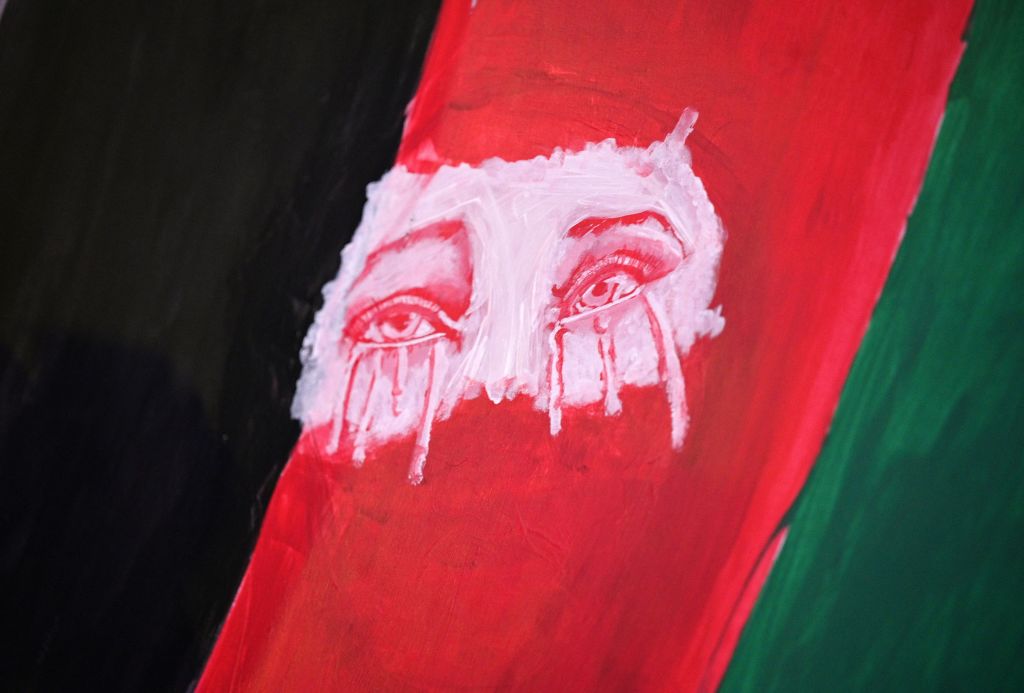Screams for help are coming from Afghanistan, and echoing around the world. Mine comes from British consultancies and charities the UK government funded to run state-building projects in Afghanistan. As a fair number of Conservative politicians and activists read The Spectator, I am publishing them here in the hope that you will alert your leaders to the desperate need for sanctuary for people who have every right to expect help, but are being abandoned.
I am not writing it in the polemical ‘this is the worst government in modern British history’ spirit. (There will be more than enough time for that.) Nor is it the moment to say that the Johnson administration failed in the basic political task of imagining a worst-case scenario and having a contingency plan ready for when it hit. (Once again, we can save that for another day.)
What matters now is helping the Afghans we have endangered. An easy way to do it would be for the Foreign Office to accept that it has made a simple bureaucratic error. If its officials correct it, and they can correct it in minutes, they will save many lives.
Here is the problem. The government says it will evacuate and relocate Afghans who worked for the British armed forces and embassy. But it is ignoring thousands of Afghans who worked for British NGOs and firms that were receiving money from the UK government, and were engaged on projects approved by the UK government. Any reasonable person would say that the UK government employed them. But because they were technically working for charities and consultancies rather that the British state directly, the UK government has decided that they are not the UK’s responsibility.
What matters now is helping the Afghans we have endangered
I say, ‘decided’. But maybe there has been no decision and in the heat and panic of a crisis officials have just forgotten about them. Whether it is a sin of omission or commission, British officials refuse to come to their aid because none of the categories in the paperwork covers them.
I should not need to add that the Taliban see the fine lines Whitehall draws between an Afghan working for the British government and an Afghan working for a project approved by the British government as distinctions without a difference. As far as it is concerned, they were working for the infidel forces — and must suffer accordingly.
As you can see I am trying to be nice to the government. But it gives you a measure of its mediocrity and spite that the directors and CEOs of UK charities and consultancies working in Afghanistan would only speak to me off the record. They feared that if ministers and civil servants saw that they were associated with mildly critical journalism, they would go off in a huff and refuse to help. In other words, they would put the preservation of their amour propre before preserving the lives of Afghans in mortal danger.
On condition of anonymity, the director of a UK body that helped the last Afghan government deliver basic services, told me of desperate calls from his staffers. They have had to flee with their families to hide in basements, ‘just because they were our office managers or trained people on administrative procedures’.
Men and women who fled to Kabul had the families and neighbours they left behind warn them that the Taliban came looking for them in their old homes, and to expect its troops to be knocking on their door in the capital. It’s not just Afghans who were working for Britain this year who are in danger. My source was as worried about men and women who stopped working for him five years ago but were still receiving threats.
‘Everyone has the same issue,’ said Sarah-Jean Cunningham from Magenta Consulting, who was prepared to speak out. Magenta trained Afghans to provide advice on how to lessen the toll of death and injury caused by the minefields that litter the country. She wants to help them escape. Our government does not
‘The UK has one of the strictest programmes of any of the coalition countries,’ she said. ‘We send in applications for our workers, and don’t hear anything back.’
Other countries are rising to the challenge of the return of tyranny. Canada is promising to take 20,000 vulnerable Sikh and Hindu refugees – before it fell in 2001, the last Taliban government engaged in the wholesale persecution of religious minorities. Whatever its culpability in triggering this catastrophe, the Biden administration is putting aside half a billion dollars (£360m) to help Afghan refugees. European countries that really cannot afford it – Albania, Kosovo and North Macedonia are opening their doors to exiles. Meanwhile we have ‘one of the strictest programmes of any of the coalition’.
I could go on about the callousness of the Johnson administration. But as I said this is not a time for polemics, and the failure to rescue men and women who worked for this country in all but name may just be an administrative mistake.
If so, it is easy enough to rectify. If you are an MP reading this or if you are willing to write to your MP, here is what you need to say.
The government must acknowledge that many Afghans worked on UK projects as employees of Britain’s partners in Afghanistan, and are now in danger. Ministers need to clarify their guidance so that it explicitly states that they are covered and protected.
It is not only staff the British government employed directly, who served Britain, and if the British government does not understand that, the Taliban most certainly does.







Comments